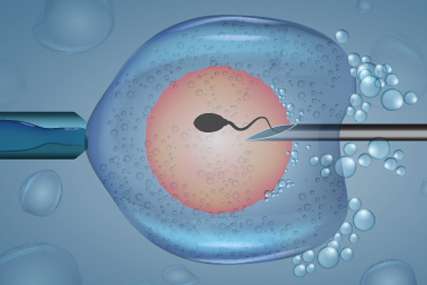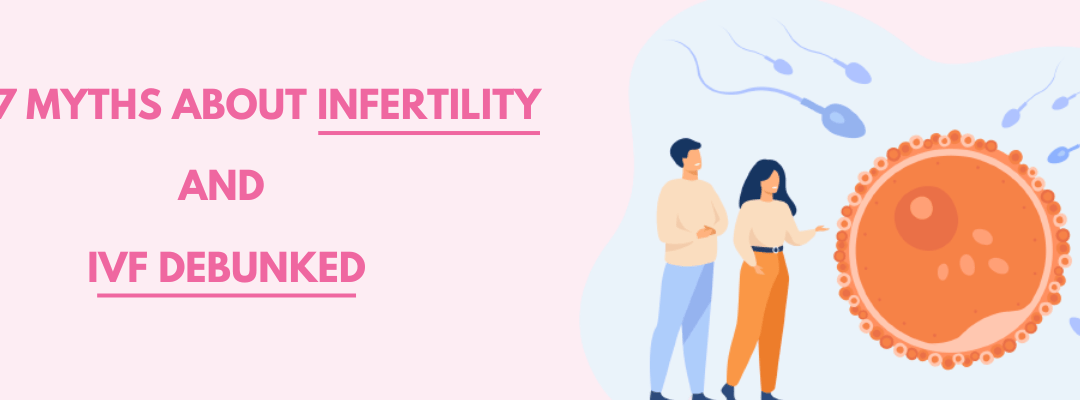Infertility is the inability to get pregnant after a year of regular, unprotected sex. Wanting to have a child and being unable to get pregnant can be heartbreaking.
The process of conceiving may not always be as simple as you think. Many myths and misunderstandings surround the topic of infertility. Even though medical science has developed many interventions and technologies, such as IVF help people with pregnancy, many of them are still misunderstood. So, let’s dispel some widespread misconceptions about IVF and infertility.
Nowadays, if a couple cannot conceive naturally, they turn to in-vitro fertilization (IVF). Due to in-vitro fertilization’s high success rate on a global scale, demand for the procedure has increased over the past ten years. However, there are a few IVF myths that need to be demystified.
Saraogi IVF Hospital is a well-established and one of the best IVF centres in Mumbai. The facility comprises a team of skilled and seasoned gynecologists who work hard to provide you with the most accurate diagnosis and effective infertility treatment in Mumbai.

At the Saraogi IVF Centre, we offer cutting-edge treatments for all forms of infertility to help people conceive who are dealing with infertility.
The medical head of Saraogi IVF Centre, Dr. Mohit Saraogi, is one of the best IVF doctors in Mumbai. He has devoted his professional life to assisting couples facing problems in conceiving.
Now, let’s discuss the most common seven misconceptions about infertility and IVF.
Myth#1: Infertility only results from problems in the woman.
Fact: Male and female partners almost equally contribute to the causes of infertility. Additionally, the causes are usually multiple. Finding one cause (for example, a woman’s blocked fallopian tubes or a man’s low sperm count) does not rule out the possibility of other reasons. To save time, money, and emotional energy, a fertility specialist, should perform a thorough diagnosis.
Myth#2: Older women tend to struggle with infertility.
Fact: Several factors, some of which may occasionally affect both men and women in their early reproductive years, contribute to infertility. Young women are frequently affected by conditions like PCOS and endometriosis, which frequently affect fertility. Other ailments like autoimmune disorders or cancer may also affect fertility.
Additionally, behavioural and environmental factors may be at play. When a woman reaches her mid-thirties, her ovarian reserve begins to decline significantly, but we also see young women with lower egg reserves.
Not all older women will have trouble getting pregnant, and not all young couples will have no problem conceiving.

Myth#3: If you had your first child easily, the next pregnancy would also go smoothly.
Fact: There is no surefire way to know. Your age might be the only thing that has changed since having your first child. You are older now. You might not have as much time to engage in spontaneous sex. There could be new issues that have emerged. There may be less sperm count in your partner. Your fallopian tube or tubes might be blocked. Your egg supply might have been diminished.
Speak to your gynecologist if you are under 35 and have been trying to conceive for a year (even if it is for your second child) (six months if you are over 35).
Myth#4: IVF is the only option for infertile couples to conceive.
IVF is not always necessary. Other treatments are available, including ovulation induction, IUI, sperm-improving drugs, minimally invasive fertility-enhancing procedures, etc. These less complex treatment options make it simple for many couples to get pregnant.
Myth#5: IVF lowers your ovarian reserve by removing eggs you would otherwise have.
Fact: A group of eggs that may mature in that month are recruited by your body at the start of each cycle. Most of the time, only one egg develops and is released (ovulation), and the rest of the eggs in the group perishes.
For IVF, all of the naturally recruited eggs for that month are stimulated so they can all develop. For the other eggs, nothing occurs (which are not part of the group recruited for that cycle).
Myth#6: If you undergo IVF, you will have twins or triplets.
Not the IVF as a whole; the number of embryos transferred to the womb during the IVF procedure increases your chances of having multiple children.
In the past, doctors would transfer two or more embryos to achieve a successful pregnancy, significantly increasing the likelihood of twins or triplets.
Thanks to technological advances, we now better understand which embryos stand the best chance. Your IVF doctor can discuss with you about transferring one embryo at a time.

Myth#7: IVF always results in a successful pregnancy.
Any fertility procedure, including IVF, cannot guarantee a pregnancy. The most crucial thing to understand about IVF is that it is not always successful and can negatively impact your life in terms of time, money, and even emotions.
The female partner’s age is the most crucial factor in determining whether an IVF cycle will be successful. The majority of the factors that affect success are out of your control. However, many ways to improve your success include eating a well-balanced diet, exercising regularly, getting enough sleep, taking particular supplements, etc. Of course, the fertility clinic and doctor you select also impact the outcomes.
Thanks to in-vitro fertilization, a ray of hope exists for couples who have failed to conceive naturally. Research and development are actively working to improve the procedure’s efficiency and effectiveness, despite a few drawbacks.

